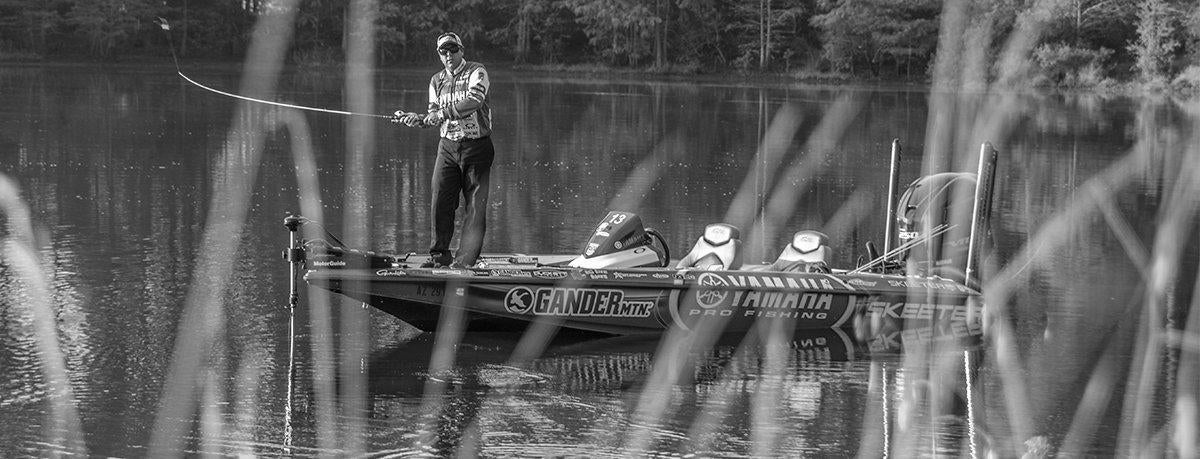“You can complain about it or you can get involved and change it.”
That’s what an older man said to me once. In regards to fishing, he hit it right on the screws.
The best days for fishing are now! I was part of the old times and today there is no comparison. We have better baits, better boats and better equipment than ever before.
Our lakes are far better, too. Ray Scott pioneered catch-and-release fishing and with it, countless bass have since escaped a hot, post-tournament grease bath and trip to dinner table. That practice of catching and enjoying the experience became a movement and now with smartphones, we are able to capture and enjoy that moment forever.
It’s up to everyone reading this piece, myself very much included, to cherish and protect our special past time.
More knowledge
The fishing-related knowledge we each gain by sitting in front of the computer or thumbing through our news feeds is staggering; the separation between the novice to seasoned angler is getting much smaller. The weekend anglers, those who work during the week, have improved their skill level exponentially and youth anglers are getting a stronghold in fishing, too.
I give the professional anglers a lot of credit. They share their decades of knowledge to the masses in order to help the sport grow. Endemic companies also are beginning to see the value in an educated angler base.
Better gear
Today we have a huge advantage with electronics that take much of the guesswork out of identifying bottom composition and finding sweet spots.
Yes—taking the time to learn and use electronics does take time, but it indeed separates good anglers from great ones. GPS used in combination with the electronics have made offshore fishing a walk in the park. GPS-locking trolling motors from Motorguide and Minn Kota will continue to make it even easier.
This state-of-the-art technology may not appeal to some older anglers, but it’s important that we all embrace it. It helps raise interest in this sport and most importantly, it grabs the attention of younger anglers. We need younger anglers—period.
Times are changing
Many old-school or traditional anglers are against these tools. They see them as an unfair advantage over the fish.
But much of the same could be said about other sports. Golf, for instance, is all about the technology these days. It would near impossible to use persimmon clubs to hit a hand-wrapped golf ball 300 yards.
In baseball, the use of video and analytics has also changed the game. Pitcher and hitter tendencies are now analyzed in remarkable detail and are used by fielders, hitters and pitchers.
It’s not considered unfair in sports to those who use them and understand how technology can give a competitive edge; the same should be true in fishing. In all honesty, it’s up to the angler to learn them or get left in the dust. The game has changed and we all need to embrace it to continue the growth of our sport.
Managing our right to fish
With all the competitive advantages we have, it is now more crucial than ever to remain vigilant not only for the fish, but the body of water as well.
There are strong movements doing their best to privatize our access, limit access and generally be a thorn in the side to all of us who love the outdoors. If we’re unified, we can stand up to these challenges.
Unfortunately, it’s currently like herding cats because we are simply not organized well. We don’t have a central clearinghouse for issue recognition or a lobby to fight against it. We need to establish that type of organization on every body of water and build a base with a unified voice.
Leaders such as Robert Montgomery of B.A.S.S. and California angler Bobby Barrack have worked hard on our behalf stifling Trojan Horse-type bills, frivolous legislation and water rights issues but we need a lot more like them. It’s up to us—and only us—to watch and manage our rights to fish and protect our water.
Getting organized
This organization could work much like the National Rifle Association (NRA) to gain a leadership position plus a strong lobby at both the state and national levels.
I would start with tournament organizations, but they can’t carry the ball alone. Anglers need to become involved at the local level and worth with their respective bodies of water. In my opinion, starting a lake association is the first step. There are national organizations like Friends of Reservoirs that can lead the charge. Starting a chapter under their jurisdiction takes very little effort and grants are available through them, too.
As anglers, we need to be the point of the spear. Lets work together for better fisheries and keep our accesses open. Always remember: The good old days are today!












